第78章 VOLITIONAL PROCESSES.(6)
To be sure, we can not produce volitional acts of every kind at will, but we must limit ourselves to the observation of certain processes which can be easily influenced through external means and which terminate in external acts. The experiments which serve this purpose are the so-called reaction-experiments. They may be described in their essentials as follows. A simple or complex volitional process is incited by an external sense-stimulus and then after the occurrence of certain psychical processes which serve in part as motives, the volition is brought to an end by a motor reaction.
Reaction-experiments have a second and more general significance besides that mentioned. They furnish means for the measurement of the rate of certain psychical and psycho-physical processes. In fact, such measurements are always made in these experiments. The primary significance of the experiments, however, consists in the fact that each one includes a volition and that it is therefore possible, in this way, by means of introspection to follow with exactness the succession of psychical processes in such a volition, and at the same time, by the deliberate variation of the conditions, to influence this succession in a systematic manner.
The simplest reaction-experiment that can be made is as follows. A short interval (2-3 see.) after a signal that serves to concentrate the attention, an external stimulus is allowed to act on some sense-organ. At the moment when the stimulus is perceived, a movement that has been determined upon and prepared before, as, for example, a movement of the hand, is executed.
The psychological conditions in this experiment correspond essentially to those of a simple volition. The sensible impression serves as a [p. 198] simple motive, and this is to be followed invariably by a particular act. If now we measure objectively by means of either graphic or other chronometric apparatus, the interval that elapses between the action of the stimulus and the execution of the movement, it will be possible, by frequently repeated experiments of the same kind, to become thoroughly acquainted with the subjective processes that make up the whole reaction, while at the same time the results of the objective measurement will furnish a cheek for the constancy or possible variations in these subjective processes.
This cheek is especially useful in those cases where some condition in the experiment and thereby the subjective course of the volition itself is intentionally modified.
Such a modification may, indeed, be introduced even in the simple form of the experiment just described, by varying the way in which the reactor prepares, before the appearance of the stimulus, for the execution of the act. When the expectation is directed toward the stimulus which is to serve as the motive,. the form of reaction known as sensorial results. When, on the other hand, the preparatory expectation is directed toward the act to be executed in response to the motive, we have the so-called muscular reaction. In the first case the ideational factor of the expectation is a pale memory-image of the familiar sense-impression. When the period of preparation is more extended, this image oscillates between alternating clearness and obscurity. The selective element is a feeling of expectation that oscillates in a similar manner and is connected with sensations of strain from the sense-organ to be affected, as, for example, with tension of the tympanum or of the ocular muscles of accommodation and movement. In the second case, on the other hand, where the reaction is muscular, we may observe during the period of preparatory expectation a pale, wavering memory-image of the motor [p. 199] organ that is to react (e. g ., the hand) together with strong sensations of strain in the same, and a fairly continuous feeling of expectation connected with these sensations. Sensorial reaction-time is on the average 0.210-0.290 sec.
(the shortest time is for sound, the longest for light), with a mean variation of 0.020 sec. for the single observations. Muscular reaction-time is 0.120-0.190 sec., with a mean variation of 0.010 see. The different values of the mean variation in the two cases are chiefly important as objective cheeks for the discrimination of these forms of reaction. [ 1 ]